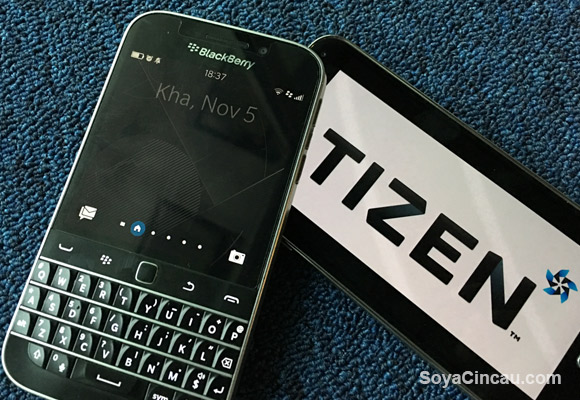BlackBerry is struggling no doubt, but to be overtaken by an underdog platform is definitely surprising. Tizen, a Linux based mobile OS that supersedes Samsung’s Bada OS has finally overtaken BlackBerry as the 4th biggest smart phone platform. While we hardly see any Tizen smart phones in our market, Samsung has found significant success in the Indian market.
According to IDC’s Q2 2015 smart phone OS market share report, Android dominates the top spot at 82.8%, followed by iOS at 13.9% and Windows Phone nabbing 3rd place at 2.6%. BlackBerry has been declining by the years from 4.9% market share (at #3 spot) back in 2012, to a new low of just 0.3% at 4th place in Q2 2015. IDC has yet to update its Q3 figures, but Strategy Analytics has just reported that Tizen has shown tangible growth, propelling itself to overtake the once popular platform known for security.
The biggest growth comes from Samsung’s Tizen Z series that’s hugely popular in India. Despite Microsoft inching its way into the affordable segment, the Tizen platform has managed to claim the #2 spot in the local budget segment. Similar to Android, Tizen is an open-source platform. In order to entice more app development, Samsung is giving 100% app revenue back to its developers.
It was surprising that Tizen had a fighting chance, considering there are ample of cheap Android smart phones in their market. The Samsung Z1 came with very low specs for INR 5,700 (about RM373). It gets a basic 4″ WVGA display, an entry level dual-core processor, 768MB of RAM and paltry 3.1MP + VGA cameras. The latest addition is the Samsung Z3 which offers a 5″ HD display, a Quad-Core 1.3GHz processor, 1GB of RAM and 8GB of storage for a mere INR 8,399 (about RM550).
As for BlackBerry, they are hoping to turn their fortunes around as they are making the switch to Android. Being a business focused device, the upcoming BlackBerry PRIV is more expensive than their current BlackBerry Passport, which gives it very little appeal for the masses. In their current predicament, BlackBerry hopes to sell 5 million smart phones or they might consider leaving the mobile business altogether.








